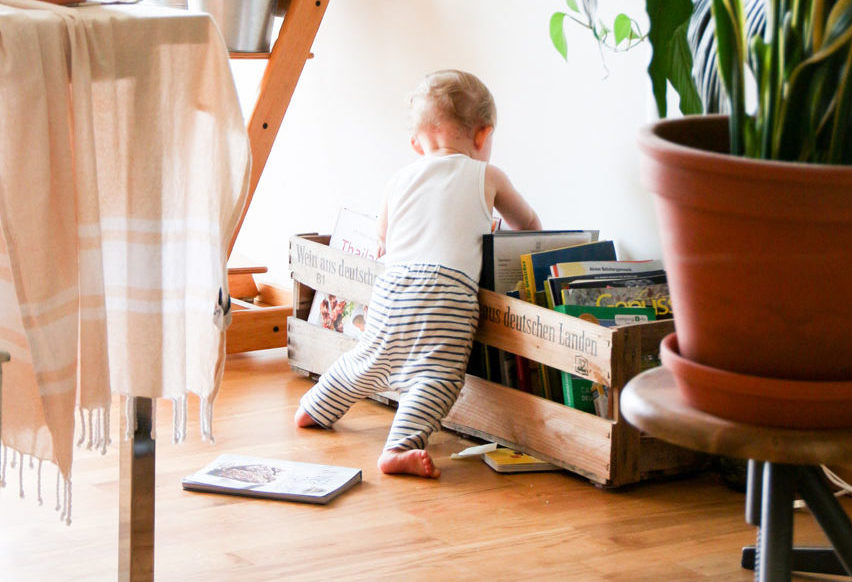Toddler
4 min Read
How to tell if a late walker is a cause for concern

May 23, 2023
Toddler
4 min Read

May 23, 2023

At 15 months, my son Evan was still not walking. Everyone kept asking, “Is he walking yet?” My daycare provider would bicycle his little legs to try to speed up the process. But our family doctor told us not to worry because Evan was developing well and meeting his other milestones. Sure enough, by the time he was 16 months, Evan was cruising. A few years later, when his little sister, Hannah, was still crawling at 15 months, I figured she was on her brother’s timetable. And she was. At about 16 months, she took her first steps.
But when the nine-month-old in your Mother Goose class is handily navigating the room on two feet and your 15-month-old is still on all fours, a parent can start to worry. So when is a late walker a cause for concern?
Most children start walking between 11 and 16 months, but some will wait until 18 months with no need to worry, says Dr. Jean-François Lemay, a developmental pediatrician at the University of Calgary. “The quality of movement is sometimes more important than the child’s ability to stand on two feet,” he says. For example, parents should pay attention to their baby’s strength, muscle tone and whether she can use both sides of her body equally well.
“If a child walks late, she probably started sitting late. As long as she is progressively meeting her milestones, there is probably no need to worry,” says Dr. Lemay. Check with your doctor if your baby does not have head control by three to four months, is not sitting by nine months or if her muscle tone feels stiff or mushy. Dr. Lemay says a baby who is not walking at 18 months should be followed closely. By 20 months, he would recommend further investigation.
Dr. Lemay says parents should also consider their baby’s personality, too. “Babies with a laid back temperament, though not entirely proven by literature, tend to be late in crawling and walking. They are content looking around and playing rather than going, while more impulsive babies will start to go early. If you are worried at any point, there is nothing wrong with contacting your doctor or a physiotherapist,” he says.
Anne-Marie Hamilton, a partner and pediatric physiotherapist at Paediatric Physiotherapy Associates in Toronto, says many babies simply lack the opportunity to start walking. “We call them container babies. They go from the carrier to exersaucer to a jumper. What they miss is the time on the floor to develop their motor skills. That is when they learn how to move.”
Anne-Marie says that bicycling your baby’s legs or putting them on their feet and trotting them around doesn’t help develop motor skills. She suggests helping your baby walk while holding their hips so they are controlling their trunk themselves. She also recommends putting toys on the couch to encourage cruising.
“If your baby won’t stand without holding on to the couch, get a toy with two parts. Let them pick up one piece with one hand and then give them the other part. The next thing they know, they are standing on their own,” she says. Another tactic is to place toys on the floor when your child is standing up. “When your baby goes into a squat and returns to standing, that is giving them the muscle work to be able to manage walking.”
While these strategies can help move things along, Dr. Lemay says not to worry too much. “We don’t need to teach our kids to walk. We can create an environment to help the child do it better for himself,” he says. “It’s not easy. We want our kids to do well in life. But be careful not to join the neighbourhood race to see whose baby walks first. If your baby is healthy, timing is of no consequence. Just be happy to share these special moments.”
Originally published in 2015.